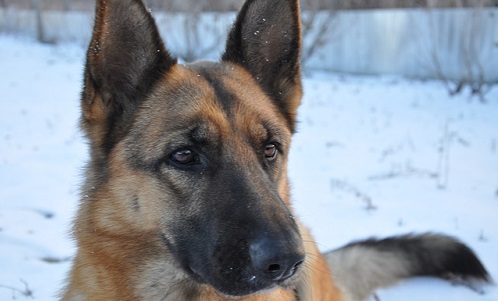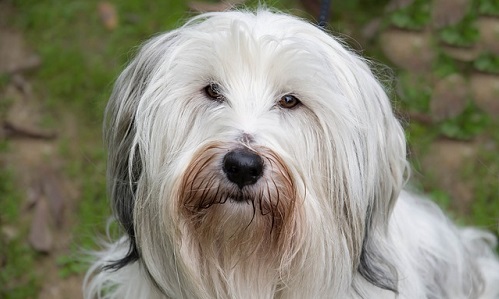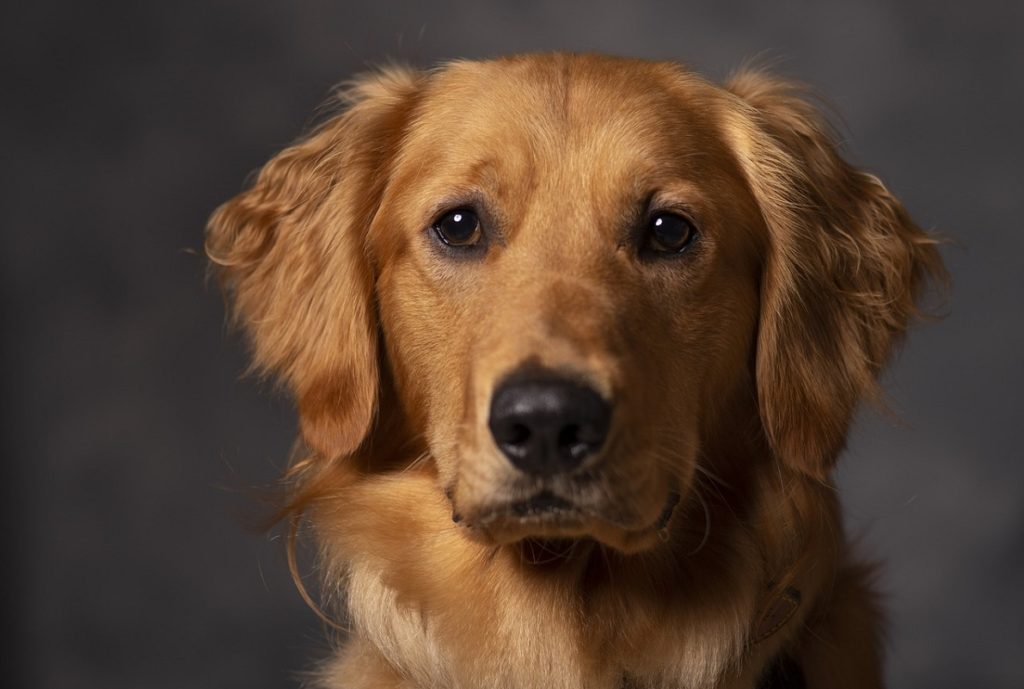Every dog owner has had “the moment” – sitting on the couch and idly petting their pup before realizing that their fur doesn’t feel the way it should and something smells terrible. Oh no! Your dog has rolled in poop again and you just touched it. Ughh – gross!
Now you have a long, difficult bath-time in your future for your proudly smelly pup, not to mention a thorough examination of every corner, piece of furniture, and doorway they might have passed through. Why on earth does your normally well-behaved dog suddenly feel compelled to cover themselves in their own mess? The answer is complex, but it actually goes all the way back to their wolf ancestors, and they definitely aren’t doing it to ruin your day.
The Scent-Masking Game: An Ancient Canine Tradition
So why do dogs roll in poop anyways? Well to begin, wild animals depend heavily on their sense of smell to navigate the world around them, find food, and to avoid dangerous prey. The ancestors of your canine companion fit neatly into that “dangerous prey” category, thanks to their strong leg muscles, speed, and powerful jaws. For plant-eating animals like deer or rabbits, the scents, pheromones, and fur musks given off by meat-eaters were a dead giveaway it was time to find another place in the forest to chow down on their favorite plants.
Wolves, being the clever ancestors of your smart pup, realized something had to be done to mask their smell. With showers in short supply, scent masking was the next best thing – even if they tried to stay upwind, there was a chance their natural scent could come through without some assistance. And what was one of the smelliest substances readily available? The droppings from their plant-eating prey. Packs of wolves would roll in the droppings before a hunt to tamp down their meat-eater’s musk. This kept their prey from fleeing long enough to sneak up effectively and make the kill.
There were some fringe benefits, as well – that much exposure to their anti-air-freshener of choice also boosted the immune system, and during those prehistoric winters, might have even provided a little insulation.
Now What Is He Rolling In?
Unfortunately, the smell-rolling behavior is often not restricted to poop alone. While droppings are one of the most familiar and readily-available materials for your dog to practice this behavior, they can get disgustingly creative when it comes to coating themselves in stink. If you’re a dog owner that lives near the water, you’re likely very familiar with this phenomena and have dealt with a dog happily greeting you while wearing eau de low tide. If you live near a road, unfortunate animal victims of fast-moving cars are another culprit – deer, raccoons, and squirrels, in particular.
 While humans have about 6 million smell receptors, dogs have 300 million, so what’s just an unpleasant smell to us may be a symphony of information to a curious canine. Their stomachs are also more readily able to process difficult-to-eat foods, such as those that we would have considered “off” or spoiled. Put all that together and you have a phenomena where the same smell that would make us lose our lunch may just smell like, well, lunch to a hungry pup.
While humans have about 6 million smell receptors, dogs have 300 million, so what’s just an unpleasant smell to us may be a symphony of information to a curious canine. Their stomachs are also more readily able to process difficult-to-eat foods, such as those that we would have considered “off” or spoiled. Put all that together and you have a phenomena where the same smell that would make us lose our lunch may just smell like, well, lunch to a hungry pup.
Remember, a roadkill carcass or a long-dead fish is a free meal to a predator that can eat it, free energy that didn’t have to be tracked, hunted down, and dispatched. When your dog is rolling in dead animals and coming home, they are trying to tell you that there is easy prey nearby and to follow them to find it. It’s undeniably gross in the moment, but it’s the thought that counts, right? It’s the doggie equivalent of a cat leaving a half-eaten mouse on your doorstep – your pet is trying to show you he cares and wants you to be a part of all the good things he just discovered. Kind of makes you wish dogs knew how to buy gift cards instead, doesn’t it?
Dogs may also roll in carcasses to communicate with one another – they may actually be leaving their scent on the smelly pile, telling any other dogs that “Hey, this is my kill, and if you steal it, you have to deal with me!” While it can be stomach-turning, the reasoning is sweet –they’re hoping to share the “kill” with their pack-mates, which includes you. If the material in question has really gone off, there may also be a different goal: to let you know there’s a large and potentially dangerous predator nearby. After all, if a dead thing is large enough to roll in, that means there’s a predator out there large enough to kill it, and that means trouble for the pack.
No Trespassing: Marking His Territory
Your pup likely hasn’t ever hunted in a pack of wolves, so you may be wondering why your dog rolls in poop and keeps this gross tradition alive. The answer often has to do with territory. Obviously, when they roll in their own poop, they aren’t masking their own scent – the mechanism is similar, but the results and aim are completely different. They are making sure that every animal in the immediate vicinity knows that this is their yard by essentially creating a smelly megaphone. No dog, squirrel, rabbit, or cat can possibly miss the almost-visible stink waves rolling off of a dog smeared in his own droppings.
Remember, in the wild it isn’t natural to have a potentially rival “wolf” not 20 feet away, regardless of your neighbor’s fencing options. That’s also why dogs feel the need to pee on the fences of their own property – they’re making sure that the rival understands that they are here and this yard is theirs, so no trespassing! You can attempt to de-escalate the situation by carefully introducing your dog to the neighbors’ pets or children, or socializing your dog to others so long as everyone feels it’s safe to do so. A lot of canine anxiety is tied up in the unknown, so letting them associate images with the smells that are getting them so worked up could help immensely.
Preventing Poop-Rolling Behavior: Helpful Tips
- The first step to curbing the potential poop disaster in your home is the obvious one: wash your dog, and wash him well. If you remove the smelly scent-broadcasting material, they won’t feel the need to rub up against you, your other pets, your carpet, and that new upholstered chair you’ve been desperately trying to protect. Use an odor-neutralizing, dog-safe shampoo and make sure to get down to the roots of their fur to eliminate all traces of that-which-should-remain-outside. As he’s drying off, wash any dog bedding too. Items such as blankets in a sleeping crate could also carry the scent and potentially re-fragrance your freshly-cleaned dog.
- Next, more cleanup, of the non-dog variety: Assuming your dog didn’t dive into something unfamiliar while you were out on your normal walk, he is rolling in his own excrement in your yard. Diligent pooper-scooping will ensure he doesn’t have a medium with which to practice his smelly art form, so make sure you’re picking up after your pup frequently. If you’re pressed for time or struggle to get it done, look into a local poop pickup service to keep your yard free of piles. Better yet, walk your dog outside of the yard so that you have control over their access to poop, and it isn’t littering the place they play and spend quality time.
- Examine their outdoor environment: Determine if anything could be making them vigilant about their territory. If you’ve introduced a new pet to the household, your dog could be feeling insecure about their place in the hierarchy – a little extra attention could go a long way. If a neighbor’s barking dog or loud children might be setting them off, consider relegating outside time to more quiet periods, such as when the neighbor’s dog is inside. Noise and movement outside of your dog’s vision, such as behind a slat fence, can cause them a lot of anxiety and constantly keep them in a protective, poop-rolling mindset.
- Be patient with your dog: They don’t understand why you’re angry or frustrated with them – to them, they’re doing something good and helpful for their pack…which includes you. Remember, rejecting their scent with yelling and punishment could signal to them that you reject them, and that could make your dog experience canine depression. Instead, patiently wash them and spend some quality time with them, but avoid giving them a post-bath treat. You don’t want to accidentally reward the poop-rolling behavior, after all.
- Tackle the smell of poop where it starts: The only phrase that tells us “you are what you eat” isn’t kidding. The food consumed by both human and dog will affect how our eliminations smell, and that means a change in diet could create a change in smell. If you’re introducing a new food to your dog, start by mixing it in little by little with the old one, letting him get used to the taste and digestion of the new one. This will also help ease him into the new scent of him leavings, and help safeguard against the potential of poop-rolling.
- A professional grooming may help: There are special anal glands on your dog that actually produce most of that smelly stink each time they eliminate. Like any glands, these can become impacted and clogged up, making poop smell particularly strong. A professional groomer will be able to “express” these glands to help clear them out, giving your dog relief and potentially helping with poop rolling behaviors as well. This would also be a good time to trim away any excess fur from your dog’s backside as well, ensuring they can use the bathroom quickly and cleanly any time they need to.
Eww, No – Not That, Too!
It’s gross and unpleasant, but dogs’ complicated relationship with their own bathroom habits isn’t confined to wearing it. Sometimes a watchful owner will catch their dog in the act – eating or attempting to eat their own leavings. This can be both troubling and puzzling for an owner that goes out of their way to offer their pup delicious, wholesome food and treats: why would they prefer eating that to their store-bought goodies?
 When the body digests food, it excretes a tidy package of everything that was indigestible, which in a pet’s case can mean a lot of protein. Their natural body processes are very intelligent ones, so if they’re missing a nutrient that they know they recently ingested, they’re driven by instinct to seek out their own scat to attempt to ingest any that remains. This admittedly nauseating trick is also why pet owners with both dogs and cats find themselves constantly shooing their dog away from the cat’s litter box – cat feces is essentially pure protein, and it’s no coincidence that most commercial dog foods are high in protein.
When the body digests food, it excretes a tidy package of everything that was indigestible, which in a pet’s case can mean a lot of protein. Their natural body processes are very intelligent ones, so if they’re missing a nutrient that they know they recently ingested, they’re driven by instinct to seek out their own scat to attempt to ingest any that remains. This admittedly nauseating trick is also why pet owners with both dogs and cats find themselves constantly shooing their dog away from the cat’s litter box – cat feces is essentially pure protein, and it’s no coincidence that most commercial dog foods are high in protein.
If you notice your pup trying to eat his own excrement or that of another animal, it may signal the need for a change in diet. Speak with your vet about your dog’s nutritional needs, and supplement his kibble or wet food with ingredients like brown rice and boiled chicken to give them the protein they’re searching for from a much better (and less icky) source. If he’s particularly stubborn about the behavior, there are some safe food additives you can purchase at a pet store that will make the smell and taste of their own poop unpalatable, hopefully solving the issue where it began.
Summary
Always bear in mind that your dog doesn’t mean to ruin your day by rolling around in his own poop – they actually think they’re doing something thoughtful and beneficial for their pack. Rather than punishing them, just commit to cleaning up, figuring out what triggered the behavior, and giving your pup plenty of reasons not to want to do it again. Hopefully it will keep his paws on the ground and his fur free of stink!
Sources:
- Schade, Victoria. “How to Stop Your Dog from Rolling in Poop.” PetMD.com, (no publish date), https://www.petmd.com/dog/behavior/how-stop-your-dog-rolling-poop. Accessed November 27, 2018.
- Pena, Melvin. “Live to Roll, Roll to Live: Why Do Dogs Roll in Poop?” Dogster.com, December 6th, 2016, https://www.dogster.com/lifestyle/live-to-roll-roll-to-live-why-do-dogs-roll-in-poop. Accessed November 27, 2018.
- “Why Dogs Roll in Poop (and Other Smelly Things).” Hill’s Pet.com, (no publish date), https://www.hillspet.com/dog-care/behavior-appearance/why-do-dogs-roll-in-poop. Accessed November 27, 2018.




